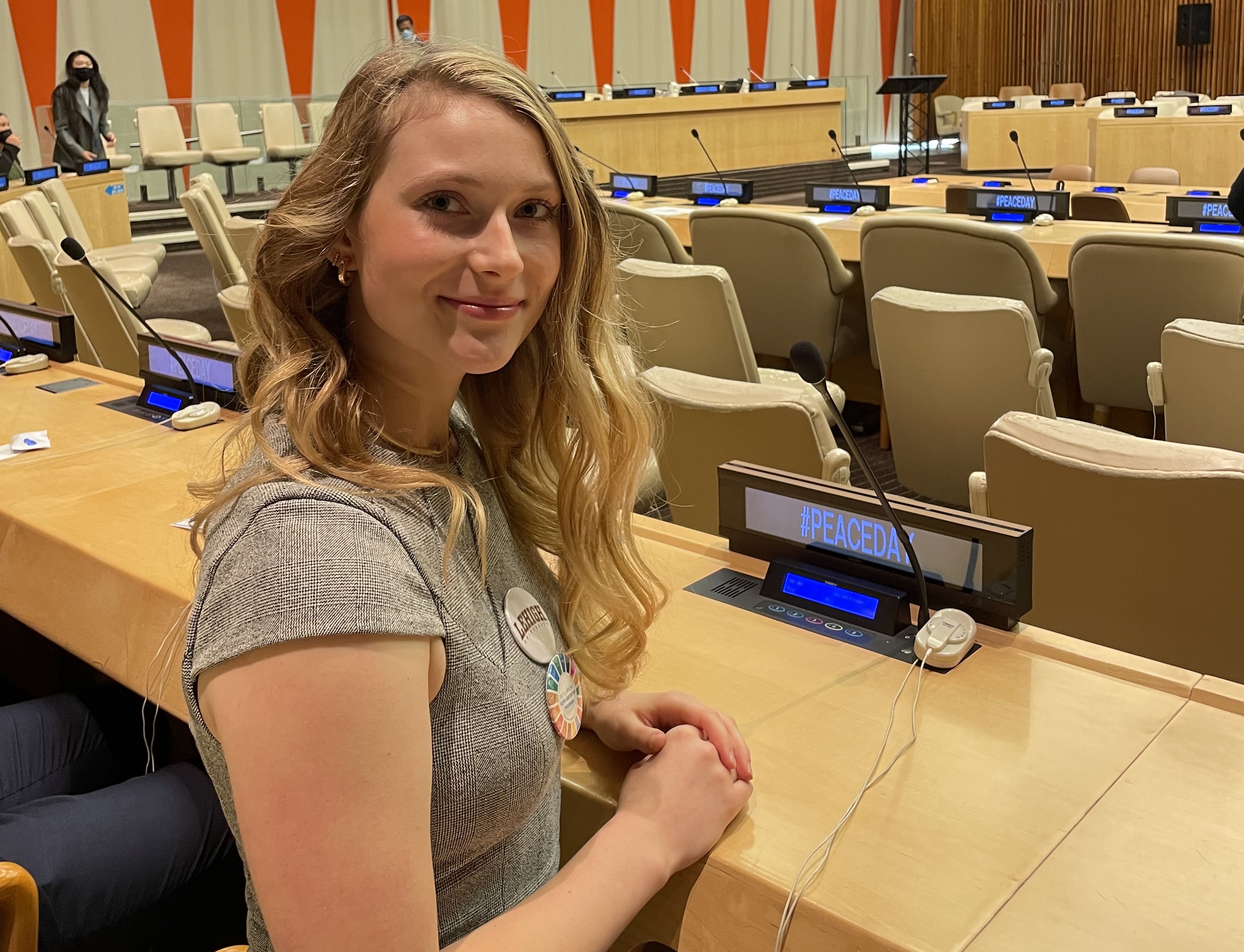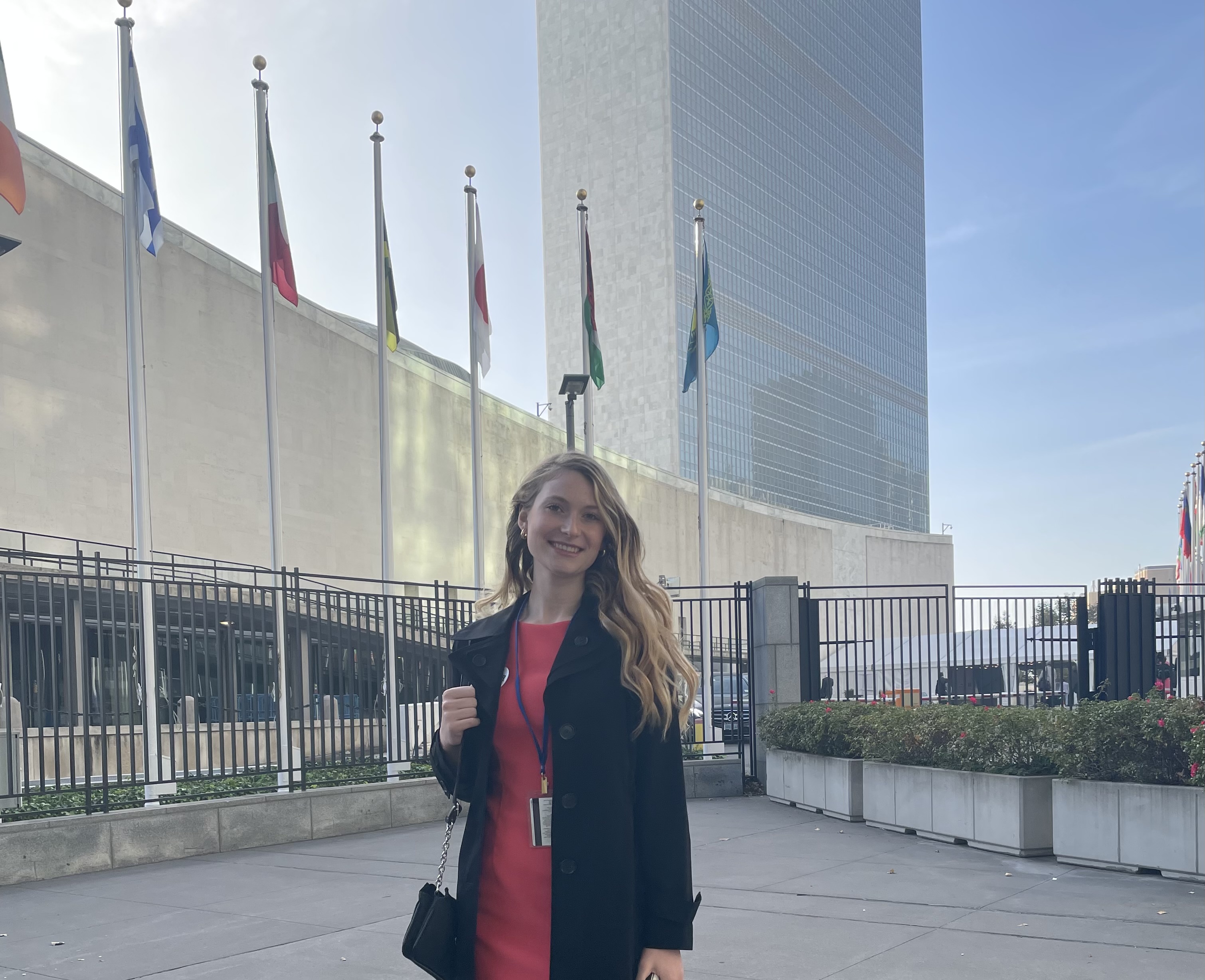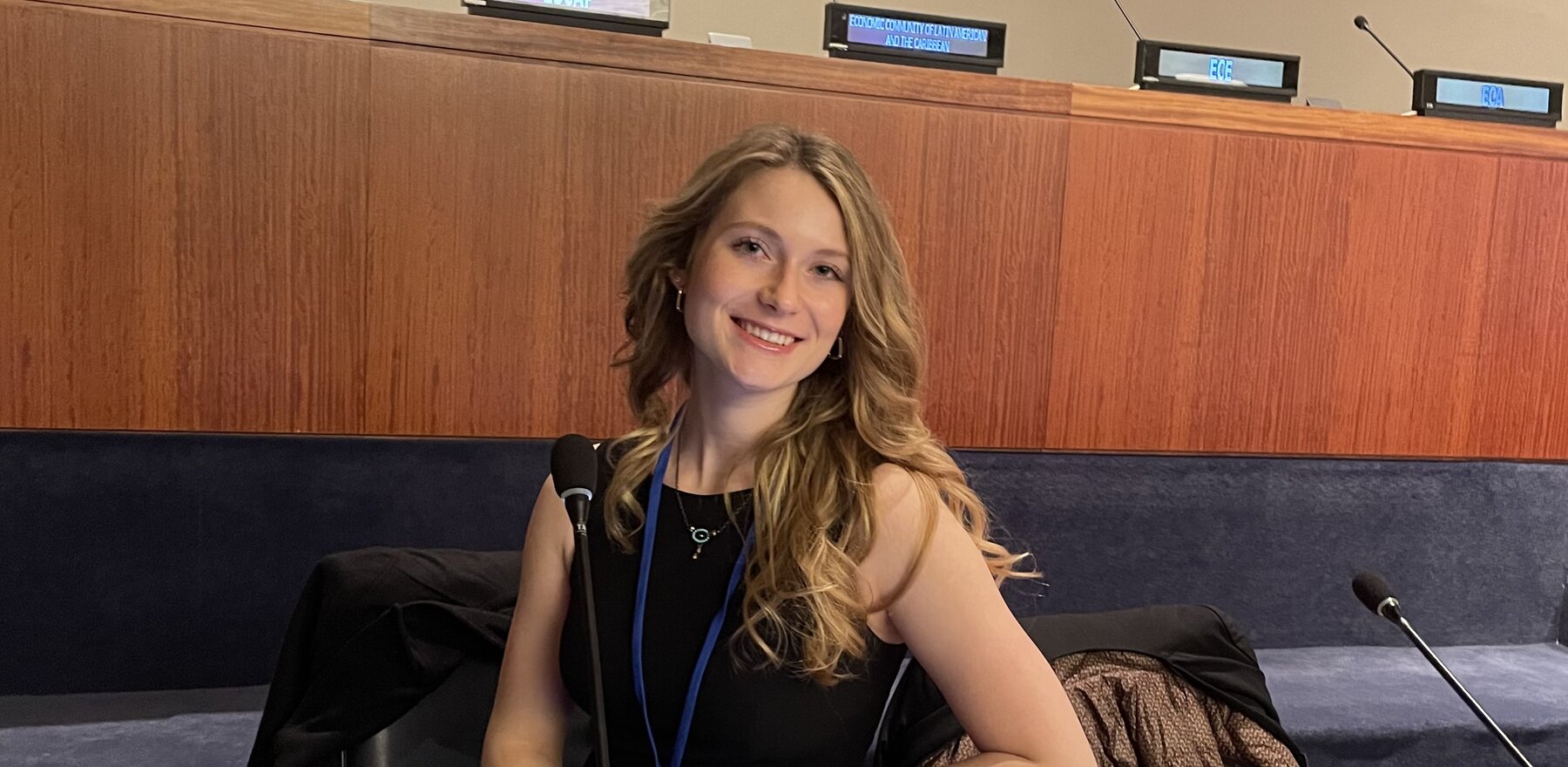Nikki Pasterczyk ‘25 spoke about the importance of newborn screenings for rare non-communicable diseases at the U.N.'s Commission for Social Development conference
Nikki Pasterczyk ‘25 knows personally the impact rare non-communicable diseases (NCD) can have on people and their families. Her brother was born with phenylketonuria, a rare disorder that causes levels of an amino acid called phenylalanine to build up in the body, causing a risk of brain damage, birth defects, and other serious health problems.
Fortunately, her now 22-year-old brother got the care he needed because his family learned about the condition right away thanks to a newborn screening (NBS), which allowed his family to seek the proper treatment. But Pasterczyk knows many low-income families don’t have those potentially life-saving screenings available to them.
Pasterczyk, 20, a Lehigh University junior majoring in molecular biology, was able to speak about the importance of such screenings at the United Nations, presenting at the 62nd session of the Commission for Social Development (CSocD), a conference focused on social issues, particularly inequities in economics and socioeconomic issues.
“Globally, 40 million babies are born annually, yet only one-third receive screening,” Pasterczyk, one of Lehigh’s United Nations Youth Representatives, said during the conference. “It is unacceptable that NBS is not uniformly available.”
Pasterczyk’s U.N. Experience
This marks the first time a Lehigh student has presented at the CSocD conference specifically, but it's not the first time Pasterczyk herself has spoken before the U.N. Last year, she also presented at the Commission on the Status of Women, while also organizing a side event for the Australian-based organization CLAN (Caring & Living as Neighbours).
CLAN, which is committed to equitable access to resources for children with NCDs and living with chronic health conditions in resource-poor settings, is the non-governmental organization (NGO) that Pasterczyk represents. Although most Lehigh U.N. Youth Representatives begin as sophomores or higher, Pasterczyk began in the spring semester of her first year.
“Nikki is a great example of how the Youth Representatives program can help Lehigh students achieve greatness,” said Bill Hunter, Director of Fellowship Advising and U.N. Programs at Lehigh. “For someone who has presented at multiple conferences of such international prominence, she remains very down-to-earth and humble.”
The theme of this year’s CSocD conference was “fostering social development and social justice through social policies to accelerate progress on the implementation of the 2030 Agenda for Sustainable Development and to achieve the overarching goal of poverty eradication.”
A Focus on Research and Medicine

Pasterczyk hopes to become a physician scientist who works with medical students, and is interested in pursuing a program to obtain both her M.D. and Ph.D., so she can combine aspects of research, science, and medicine into her career.
“I want the intersection between the M.D. and Ph.D. because I feel like there’s a lot of disconnect between the medical world and research,” she said. “I want to bridge those divides. The scientific knowledge of these conditions is important, but as a physician I also want to make sure I promote equity and make sure these treatments are being done equitably.”
It is estimated 1 in 4 children live with an NCD, which is a long-term health condition that does not spread from person-to-person. Examples include Type 1 diabetes, cancer, asthma, cystic fibrosis, and congenital adrenal hyperplasia. NCDs account for 41 million deaths each year, with about 85% in low- or middle-income countries, Pasterczyk said in her presentation.
“These inequities can be attributed to delayed diagnosis and limited access to medicines, health care, and social services,” Pasterczyk said at the U.N. “Access to NBS plays an important role in diagnosing many childhood NCDs so that treatment can be started before adverse effects develop.”
The LU/UN Partnership
The LU/UN Partnership provides opportunities for all Lehigh students, faculty, and staff to gain skills necessary to become successful global changemakers by engaging with the U.N. in meaningful ways. Each year more than 1,000 Lehigh faculty, staff, and students attend U.N. conferences, high-level briefings, and private meetings with ambassadors and other U.N. officials.

The LU/UN Youth Representative Program is a year-long commitment that matches U.N.-accredited NGOs with Lehigh students, who serve as that organization’s voice at the United Nations. These representatives meet with global decision makers, participate in international conferences, and moderate briefings broadcast worldwide.
In addition to serving as a Youth Representative, Pasterczyk also received a National Science Foundation Research Experience for Undergraduates (REU), which provides research opportunities for undergraduate students at research sites in the United States and abroad.
Lehigh’s Office of Fellowship Advising (OFA) assisted Pasterczyk in becoming a LU/UN Youth Representative and applying for the REU. They also helped her apply for a Barry M. Goldwater Scholarship, one of the most prestigious national undergraduate scholarships in the natural sciences, engineering and mathematics. Those scholarships will be awarded in March.
“I always recommend the OFA to others at Lehigh because they do a really great job and are an amazing resource,” Pasterczyk said. “I know the team there really cares about me and wants me to succeed. They’re a great group and I truly appreciate them.”
